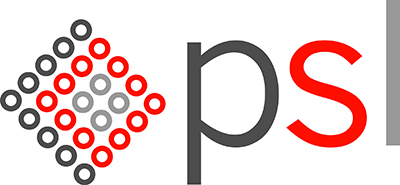Using a glass Nutsche filter vessel rather than one made from steel or speciality alloys is advantageous when chemical inertness and visibility are essential.
Glass Nutsche Filter Dryer Basics
Glass Nutsche filters are multifunctional pieces of equipment used in a wide variety of chemical processes. Their primary function is to filter solids from suspension in a liquid phase, though they’re also capable of product washing, re-slurry, vacuum drying, and product sampling. Units capable of drying and cooling the filtered solid product after filtration are known as glass Nutsche filter dryers.
Within a glass Nutsche filter dryer, filtration is carried out using a filter mesh and is assisted by a combination of agitation, pressure from above and suction from below. In GFD Lab glass Nutsche filters, the filtration mesh can be easily switched out to accommodate different pore sizes and materials like polypropylene, PEEK, 316LSS, and Alloy 22.
Performing both filtration and drying within a single piece of equipment is especially useful in applications where handling should be minimised, such as processing sensitive active pharmaceutical ingredients or hazardous compounds. The ability to carry out complex filtration processes within a closed system sets glass Nutsche filters apart from other filtration methods: it ensures high product recovery while minimising contamination and guaranteeing the process is safe for personnel.
Glass Nutsche filter dryers can process large batches and are capable of achieving much lower moisture levels than other filtration techniques such as Büchner filtration. The use of a motorised agitator means that glass Nutsche filter dryers can filter more effectively and carry out washes and assisted discharging of products. The result is that glass Nutsche filters provide highly effective filtration and removal of impurities while reducing the amount of solvent required.
Advantages of a Glass Nutsche Filter
Nutsche filter dryer vessels can be made from various materials, including stainless steel, specialty alloys, glass-coated steel, or borosilicate glass.
Using a glass Nutsche filter vessel offers some unique advantages. In particular, glass Nutsche filter vessels are highly inert, enabling the processing of particularly reactive sensitive compounds. In addition to this, glass Nutsche filter vessels are wholly transparent and allow visual inspection of the slurry/product during all processing stages. Furthermore, glass is anti-adhesive and non-porous, meaning it resists the build-up of sticky or adhesive substances and can be easily cleaned. Lastly, glass adds value in its cost-effectiveness; it is much cheaper to purchase glass filters than metallic alternatives.
For these reasons, glass Nutsche filter vessels are often preferred for lab-scale and R&D applications where scientists and engineers are working to optimise processes.
GFD Lab: The High-Performance Lab-Scale Glass Nutsche Filter from Powder Systems Limited
The GFD Lab glass Nutsche filter dryer provides the reliability and performance of a production-scale filter-dryer in a benchtop form optimised for laboratory applications.
Providing a full range of filtration, washing, and drying activities in a single system, the GFD Lab enables researchers and manufacturers to overcome the limitations of other filtration techniques.
GFD Lab has been designed with modularity and flexibility in mind. Available with a full range of vessel materials – including glass, 316LSS, Alloy 22, and Nutsche filter vessels – the GFD Lab allows users to interchange vessel sizes from the 010 and 050 series without the need for a different base frame. Its unique, removable filter basket design ensures maximum product yield and easy collection. Build bespoke processes, optimise your process recipes, and ensure reproducibility batch-after-batch.
The GFD Lab product range is designed to streamline the scale-up process from R&D through to pilot plant production by maintaining your key process objectives and production parameters at every stage.

